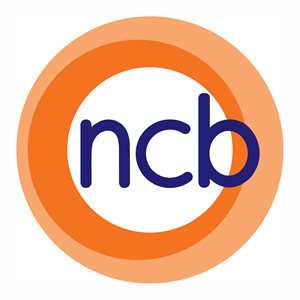 By Lucy Emmerson, Sex Education Forum Coordinator, National Children’s Bureau
By Lucy Emmerson, Sex Education Forum Coordinator, National Children’s Bureau
Good quality sex and relationships education (SRE) needs to be the cornerstone of our efforts to keep children safe and yet provision in schools remains incredibly patchy and discussions at home are sometimes non-existent.
To be effective SRE needs to start early at home and school, giving children a clear message that their questions, for example about the differences between boys and girls, and where babies come from, are acceptable and will be answered honestly and in a way that they can understand.
For a variety of reasons, not least because many adults had such poor SRE themselves, teachers and parents are often anxious about what to say to children about their bodies, sexual development and relationships, and often prefer to be reactive rather than proactive. However, to keep children safe a proactive approach is needed. It is therefore helpful that the Dare to Care campaign is designed to involve parents, grandparents, educators, young people and policy makers in the conversation.
The evidence is very clear that SRE is protective for children and young people (Sex Education Forum, 2015). A Cochrane review (2015) has concluded that ‘Children who are taught about preventing sexual abuse at school are more likely than others to tell an adult if they had, or were actually experiencing sexual abuse’. It has also emerged that only one in eight victims of sexual abuse come to the attention of statutory authorities (Children’s Commissioner, 2015).
To help schools plan lessons that are age-appropriate, the Sex Education Forum has produced a curriculum design tool. This sets out questions to explore with children and young people at each age and stage. The starting point for 3-6 year olds is the family, with questions such as ‘Who is in my family?’, ‘How are other families similar or different to mine?’ and ‘What does my family do for me?’ There is a section on staying safe and looking after myself with questions such as ‘Which parts of my body are private?’ and ‘Who should I tell if someone wants to touch my private parts?’
At secondary level, young people say they need more opportunities to explore real-life situations and the emotions involved, with acknowledgement that sex and relationships should be enjoyable, while also getting more detailed advice about how to get help if needed. “We get taught what is right and wrong but not what to do should something happen” - Young woman, age 18
Our curriculum design tool maps out the topics in a good quality SRE programme, and shows where the opportunities are to bring in discussion about consent, for example in the context of questions such as ‘What makes a relationship happy or unhappy?, ‘Do different genders have different expectations in relationships?’ and ‘What is acceptable touching and behaviour amongst my peers?’.
Good quality SRE is every child’s right and should be provided universally in all primary and secondary schools. There is also a need for targeted support for young people who have particular vulnerabilities and may be missing out on school.
Outside the Box is a personal development programme about sex and relationships for young people that aims to prevent sexual exploitation. It is specifically targeted at vulnerable young people and has been developed by the Sex Education Forum and the National Children’s Bureau through funding from Comic Relief. Outside the Box has three guiding principles that were developed together with a group of young educators:
• That messages about sex, relationships, attractiveness, and gender often do not reflect reality and can give young people confusing, and sometimes harmful, messages about what is ‘normal’
• That building young people’s self-esteem and confidence is a foundation for them being able to enjoy healthy sex and relationships
• That young people need to be equipped with the vocabulary and skills to recognise and negotiate the many pressures they face, and avoid being sexually exploited or exploiting others.
Outside the Box enables discussion about a wide range of interconnected personal and relationship issues including consent, identity, anatomy, sexual health and services, gender, sexual orientation, relationships and sexual exploitation. Independent evaluation of the programme shows positive results with frequent disclosures from young people participating. In the words of Karen Bradley, Minister for Preventing Abuse and Exploitation: “There are too many cases that I learn about where actually we could have intervened sooner”. SRE is not rocket-science and does not cost the earth. Let’s do more of it in 2016.
Lucy Emmerson Coordinator Sex Education Forum
Resources
The Consent Issue e-magazine This useful resource includes eight pages of lesson ideas and resources to integrate learning about consent in high quality SRE at all Key Stages and a section with advice on how to address classroom disclosure. Free for Sex Education Forum members, or purchase for £4.99. http://www.sexeducationforum.org.uk/resources/sex-educational-supplement.aspx
Curriculum design tool A set of questions to explore with children and young people arranged by age and stage. Free to access via the Sex Education Forum web-site. http://www.sexeducationforum.org.uk/resources/curriculum-design.aspx
Laying the Foundations A complete SRE programme for primary schools including 31 lesson plans. http://www.jkp.com/uk/laying-the-foundations-second-edition.html
Outside the Box facilitator Training Facilitator training for Outside the Box is available from the Sex Education Forum. This is a two-day training course for professionals with experience of working with vulnerable young people. The training is also available to commission in-house. Enquires to sexedforum@ncb.org.uk or visit www.sexeducationforum.org.uk/training
References Children’s Commissioner (2015) Protecting children from harm: A critical assessment of child sexual abuse in the family network and priorities for action, London. Sex Education Forum (2015) SRE – the evidence. NCB. Walsh, K et al (2015) School-based education programmes for the prevention of child sexual abuse. Cochrane Database of Systematic Reviews 2015, Issue 4. Art. No.: CD004380. DOI: 10.1002/14651858.CD004380.pub3.
